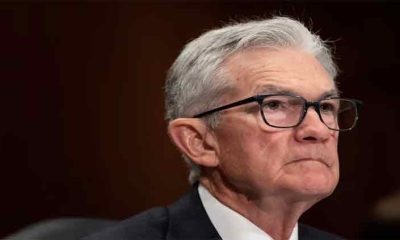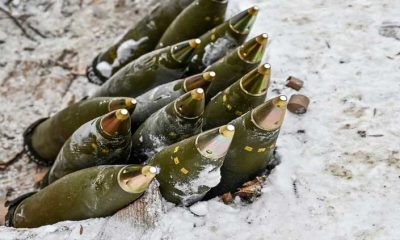Ukraine has delivered three times more drones to its armed forces so far this year than in the whole of 2023, a top commander said, as Ukrainian forces accelerate the use of unmanned craft in the war against Russia.
“This process continues and will only grow,” said Colonel Vadym Sukharevskyi, the commander of Ukraine’s drone forces.
Ukraine, which has been fighting off a full-scale Russian invasion for nearly 26 months, is seeking to ramp up its domestic arms manufacturing and use of innovative technologies to compete against its much larger and wealthier enemy.
He was speaking at an exhibition on Saturday showcasing Ukrainian-made unmanned vehicles for land, sea and air, electronic warfare systems and armoured vehicles.
Ninety-nine percent of drones used by the Ukrainian military are produced domestically, Sukharevskyi said.
“It’s no secret that our resource limitations in artillery are compensated by drones, such as FPVs (first-person view) and (bomber) drop drones,” he told reporters, referencing an imbalance of artillery firepower between Ukraine and Russia which analysts put at six to one in Russia’s favour.
As the Ukrainian military is outgunned and outmanned on the battlefield, Moscow’s forces have been increasing pressure along the entire frontline and making gradual gains.
The increased use of drones by both sides has been shifting the conflict away from the battlefield to strikes on each other’s military, energy and transport infrastructure.
Ukrainian Unmanned Aerial Vehicles (UAVs), used to hit targets inside Russia in recent months, can now hit targets more than 1,200 km (750 miles) away, Sukharevskyi said.
Tesla will lay off more than 10% of its workforce.
Oleksandr Kamyshin, Ukraine’s Minister of Strategic Industries, said Ukrainian weapons manufacturers had fuelled both military and economic progress in the country.
Ukraine’s booming military-industrial complex grew GDP by 1.5% in 2023, a significant chunk of the total GDP growth last year of around 5%.
Kamyshin said he was confident that figure would double to 3% of GDP growth this year. But he warned Ukraine’s government could not afford to buy up all its domestic weapons production.
Ukraine was in discussions with international allies about the purchase of weapons for Ukraine from Ukrainian makers to cover the financial shortfall, he said.
“I am convinced that we will start purchases from Ukrainian manufacturers with foreign funds in the new future,” he said.
Post Views: 8

 Fashion3 months ago
Fashion3 months ago
 Fashion3 months ago
Fashion3 months ago
 Sports3 months ago
Sports3 months ago
 Sports3 months ago
Sports3 months ago
 Sports2 months ago
Sports2 months ago
 Sports2 months ago
Sports2 months ago
 Fashion2 months ago
Fashion2 months ago























